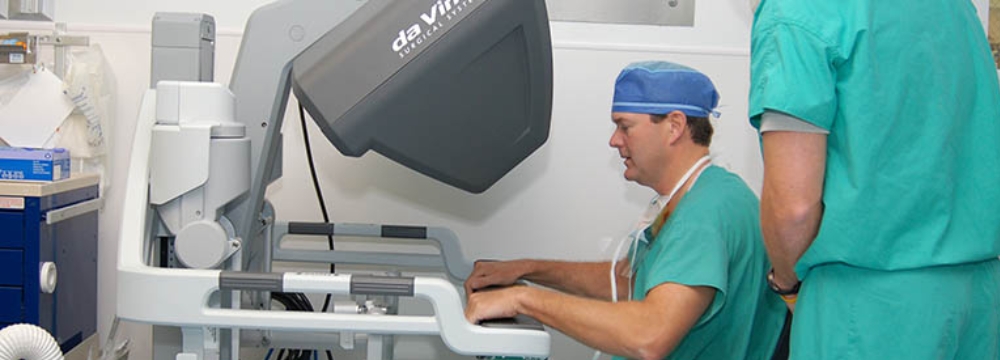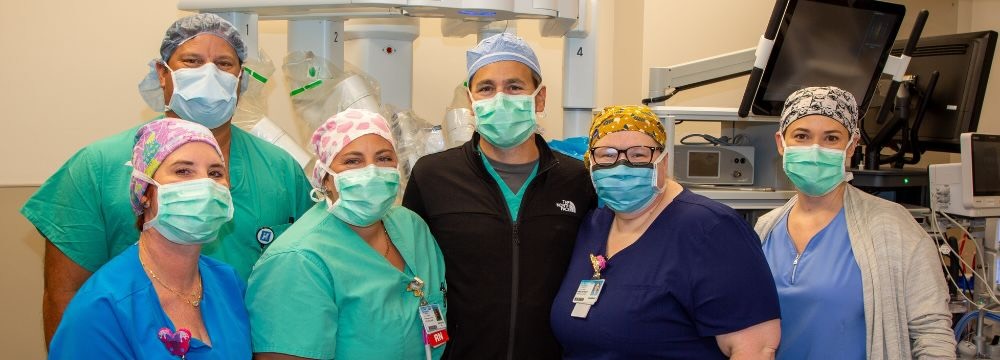
A question we are often asked revolves around whether traditional laparoscopic surgery or robotic surgery is a better option. Some of the bariatric surgeons in our practice prefer the robotic approach while others stick to conventional laparoscopy. Let’s discuss why, and if, it makes any difference in the success and outcome of your procedure.
First, before we get any deeper, it is essential to understand the progression of surgical technology from the “old days” of open surgery. Before the early 1990s, the patient only had one option. A long, single incision allowed the surgeon to access the abdominal cavity using traditional surgical instruments and direct visualization. However, in the early nineties, we made a massive technological leap that dramatically changed the face of surgery and reduced surgical risk. Two pioneers of laparoscopic surgery were here at SAMPA – Drs. Lamar Snow and Steve Weinstein, both of whom have since retired. Doctors Hannon and Lane were also part of this significant transition that soon had ninety-plus percent of all our operations performed laparoscopically. The critical change revolved around a tiny camera known as the laparoscope.
Inserted through one of the incisions in the abdomen, the laparoscope allowed us to develop miniature, long-handled devices that could pass through small incisions rather than requiring the surgeon’s hands, short tools, and big incisions. The pain, recovery time and potential blood loss were reduced significantly after the laparoscopy took off. Infection rates dropped dramatically, and the risk of an incisional hernia plummeted. Soon, laparoscopic surgery became the gold standard for all abdomen operations where possible including bariatric surgery.
This technology was the standard of care until the early 2000s when a company named Intuitive Surgical developed a rudimentary surgical robot. If you’ve ever watched Iron Man, the progression was very similar. The first robots were relatively crude, as you would expect them to be, but soon technology allowed them to be smoother and more precise. Today, robotic surgery is used across the country and around the world, and it remains an excellent option for surgeons that prefer it. The benefits of robotic surgery include better visualization with a 3-dimensional camera, reduced surgeon fatigue since they are sitting at a console near the operating table, precise movements that are scaled down and filtered, and sci-fi-like dexterity where the wristed hinge of the robotic arm can rotate 360 degrees within the abdomen.
Is There a Better Option?
The short answer is that both options are excellent when considering surgical outcomes. Some surgeons prefer the robotic solution, while others have not seen the need to switch over. As for the surgeons here at SAMPA, they are trained in both and can perform surgery either way. Ultimately, it comes down to surgeon preference.
There are sometimes when the robotic option does shine, however. This is typically when a procedure is more complex and requires a greater range of motion within the abdomen. In the laparoscopic-only days, this might mean the procedure would have to be converted to open surgery. However, the robot’s dexterity has allowed us to keep some of those procedures minimally invasive so that virtually every abdominal operation we perform does not require that long, single incision.
If you have any questions about robotic, versus, laparoscopic surgery, especially regarding an upcoming procedure you may have, we encourage you to discuss this with your surgeon. Most importantly, we prioritize the safety and effectiveness of the procedure, so if a laparoscopic, robotic, or even open operation is clearly the best option for your circumstance, we will meet that need.
We look forward to seeing you at our office for your consultation. If you are considering bariatric surgery, we encourage you to watch our online seminar or visit us for one of our in-person seminars, where this, among other questions, will be answered. And we are always available to discuss further thoughts with our staff and your surgeon.










